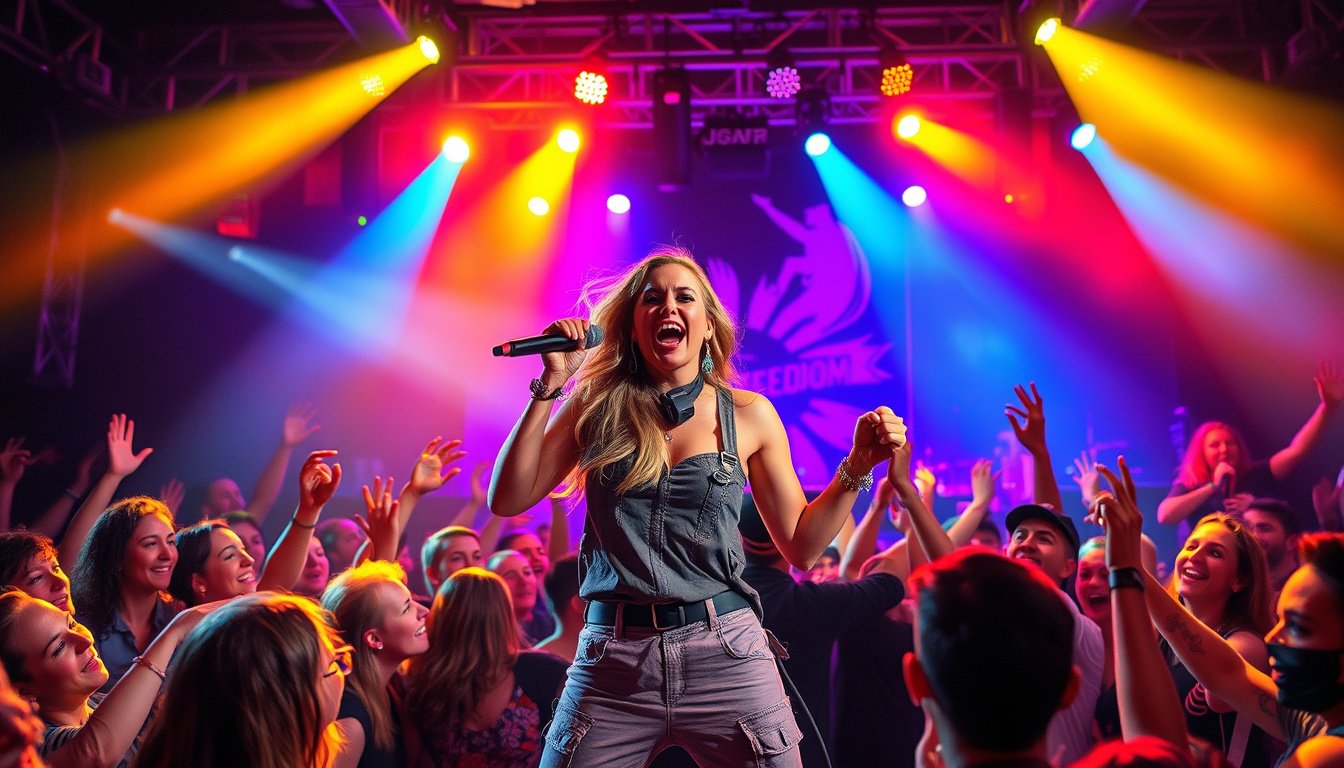In a bold move that has ignited heated discussions, a prominent rock singer has declared that supporters of former President Donald Trump will be banned from attending their upcoming concerts at the New York State Fair.
This announcement comes amidst a politically charged climate and raises questions about the intersection of music, freedom of expression, and political identity.
Fans and critics alike are responding to this controversial stance, highlighting the potential implications for live concerts and the music industry as a whole.
In this article, we will delve into the singer’s statement, explore the diverse reactions from fans and the public, and examine what this controversy means for the future of live music events and audience interaction.

Key Takeaways
- The rock singer has declared that Trump supporters will not be permitted at their concerts.
- This controversial statement is generating significant reactions from fans and political commentators alike.
- The implications of this ban could affect the artist’s fanbase and concert attendance.
The Singer’s Statement: Outlining the Ban
In a bold statement ahead of the New York State Fair, a renowned rock singer has made headlines by declaring that supporters of Donald Trump are not welcome at their concerts.
This controversial stance has sparked significant discussions within the live music community and among concert-goers, raising questions about the intersection of politics and entertainment.
During an interview, the singer expressed their belief that music should be a place for inclusivity and positivity, emphasizing that fans of differing political views might disrupt the spirit of unity that live concerts aim to foster.
This has led to a divide among fans, with some supporting the artist’s decision as a stance for social justice and others calling it exclusionary.
As live concerts continue to be a focal point for cultural expression, this incident underlines the growing influence of political discourse in the music industry.
Whether concert attendees agree or disagree with the singer’s viewpoint, one thing is clear: music remains a powerful medium for expressing personal beliefs and societal issues.
For fans planning to attend upcoming concerts, understanding this dynamic becomes essential as it reflects broader societal conversations.
Reactions and Implications of the Controversy
In the vibrant world of live concerts, recent controversies can echo louder than the music itself, stirring up a whirlwind of reactions from fans, artists, and industry insiders alike.
The latest uproar, stemming from a rock singer’s inflammatory comments regarding the presence of Trump supporters at concerts, has ignited a heated debate about political expression in art spaces.
Many fans are grappling with the implications of such statements on their concert-going experiences, often questioning the balance between artistic freedom and inclusivity.
As concert venues and artists take sides, there’s a surge in audience polarization, prompting some to reconsider their loyalty to artists who openly draw political lines.
Moreover, the discussion highlights a growing trend among musicians who leverage their platforms not just for entertainment but also to make poignant societal statements, reflecting a far deeper intersection of music and politics.
As concerts remain a space for communal celebration, the aftermath of these controversies will undoubtedly shape future interactions between artists and their audiences, signaling a potential shift in concert culture towards a more politically aware environment.

